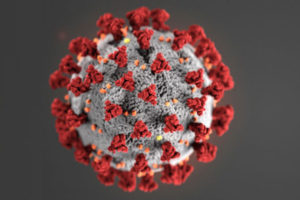Damages to multiple organs reported in young people with coronavirus
 Signs of damage to multiple organs have been reported in young and previously healthy people with ongoing corona virus symptoms four months after their initial infection, a British study has revealed.
Signs of damage to multiple organs have been reported in young and previously healthy people with ongoing corona virus symptoms four months after their initial infection, a British study has revealed.
The Coverscan study aims to assess the long-term impact of COVID-19 on organ health in around 500 “low-risk” individuals, mainly those who are relatively young with ongoing corona virus symptoms, but without any major underlying health issues, The Guardian reported.
Preliminary data from the first 200 patients suggested that four months since their initial illness, almost 70 percent have reported damages in one or more organs, including the heart, lungs, liver and pancreas.
“The good news is that the impairment is mild, but even with a conservative lens, there is some impairment, and in 25 percent of people it affects two or more organs,” Amitava Banerjee, a cardiologist and associate professor of clinical data science at University College London was quoted as saying.
“This is of interest because we need to know if (the impairments) continue or improve, or if there is a subgroup of people who could get worse,” Banerjee said.
Another 24,962 people in Britain have tested positive for COVID-19, bringing the total number of corona virus cases in the country to 1,369,318, according to official figures released on Sunday.
The corona virus-related deaths in Britain rose by 168 to 51,934, the data showed. Britain is the first European nation to record more than 50,000 corona virus deaths.
It is the fifth country in the world to hit the tragic milestone, following the United States, Brazil, India and Mexico.
England is currently under a month-long national lockdown until December 2, the second of its kind since the corona virus outbreak in Britain, in a bid to quell the resurgence of corona virus.
To bring life back to normal, countries such as Britain, China, Germany, Russia and the United States are racing against time to develop corona virus vaccines.
Source: GNA
